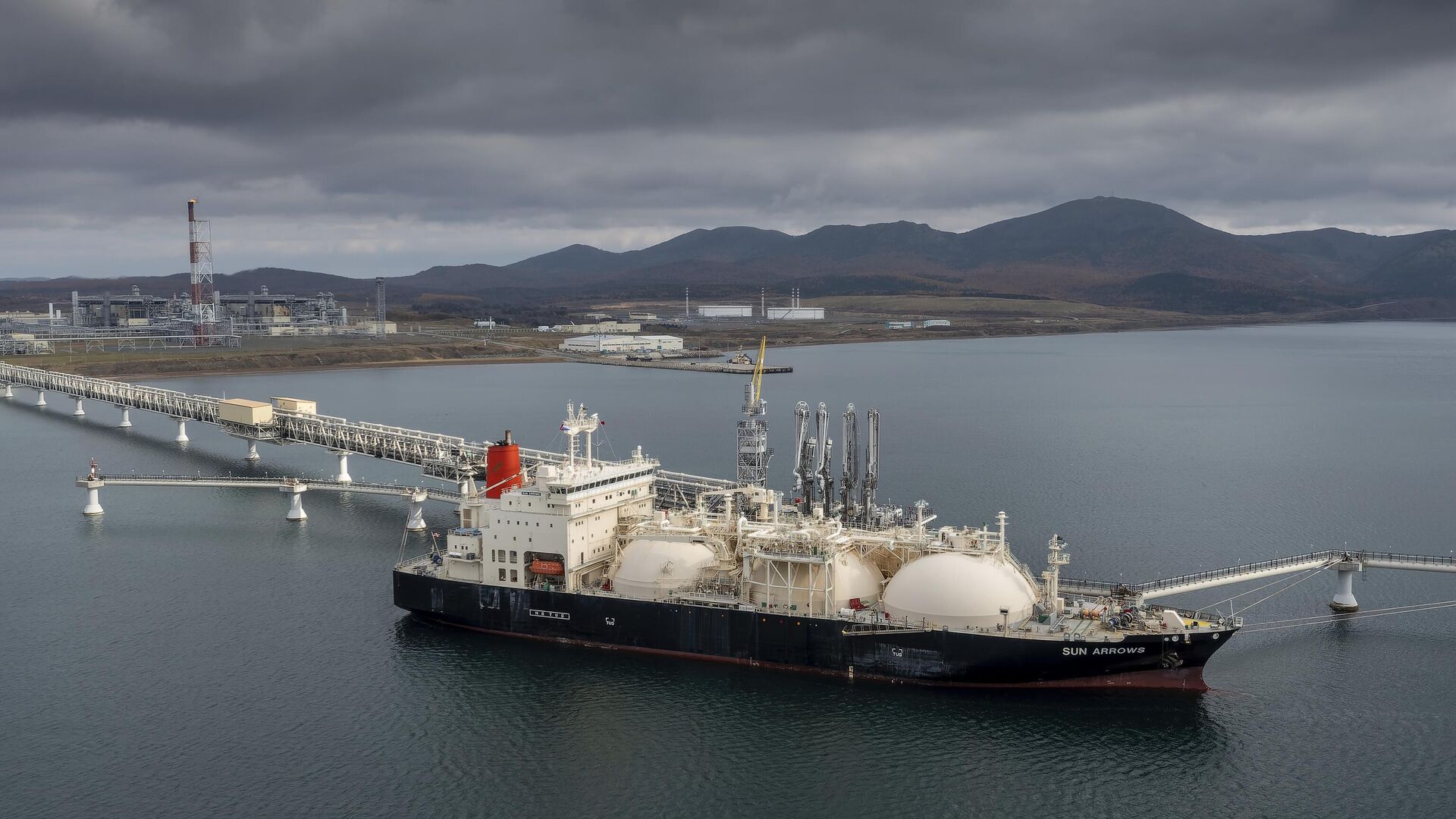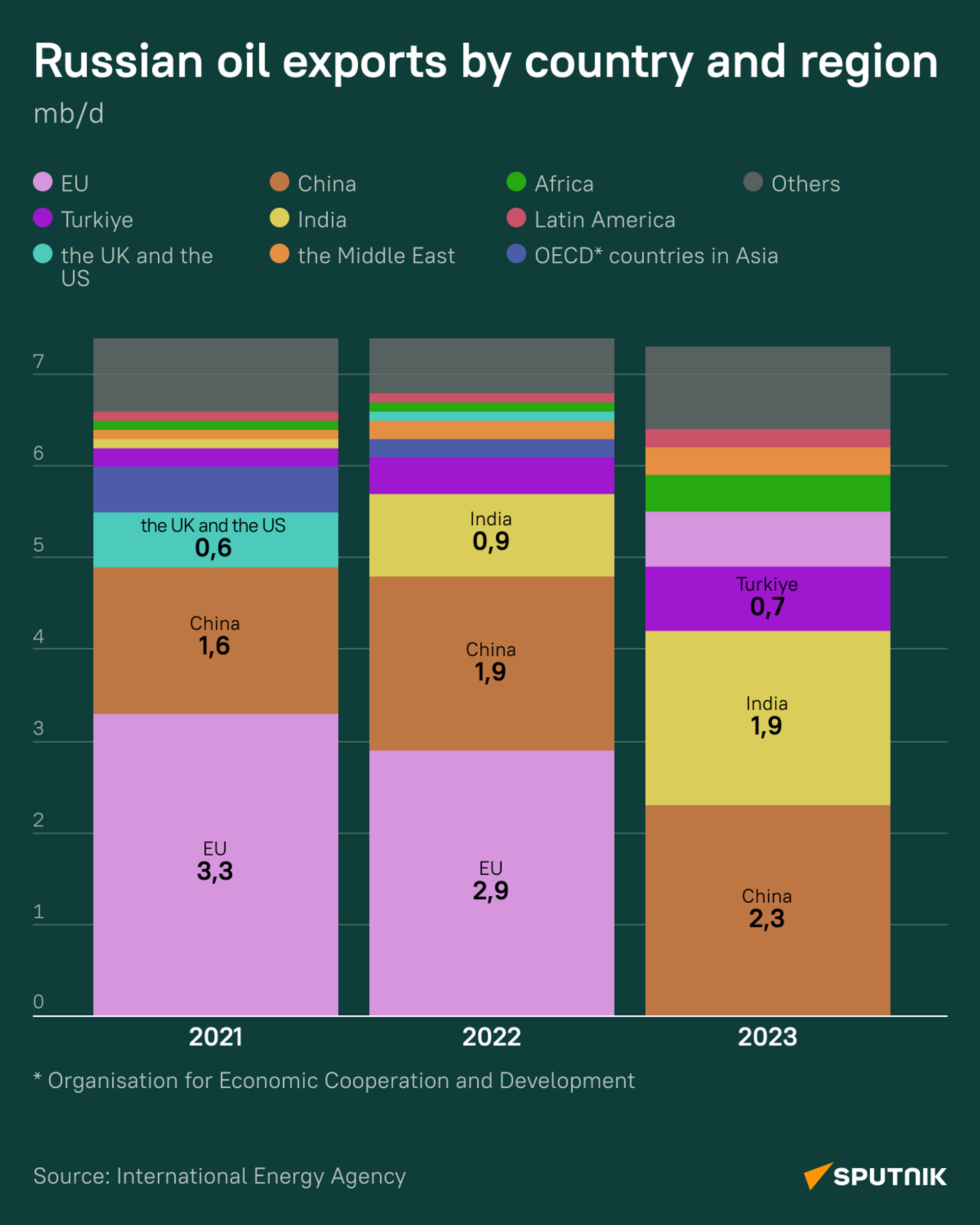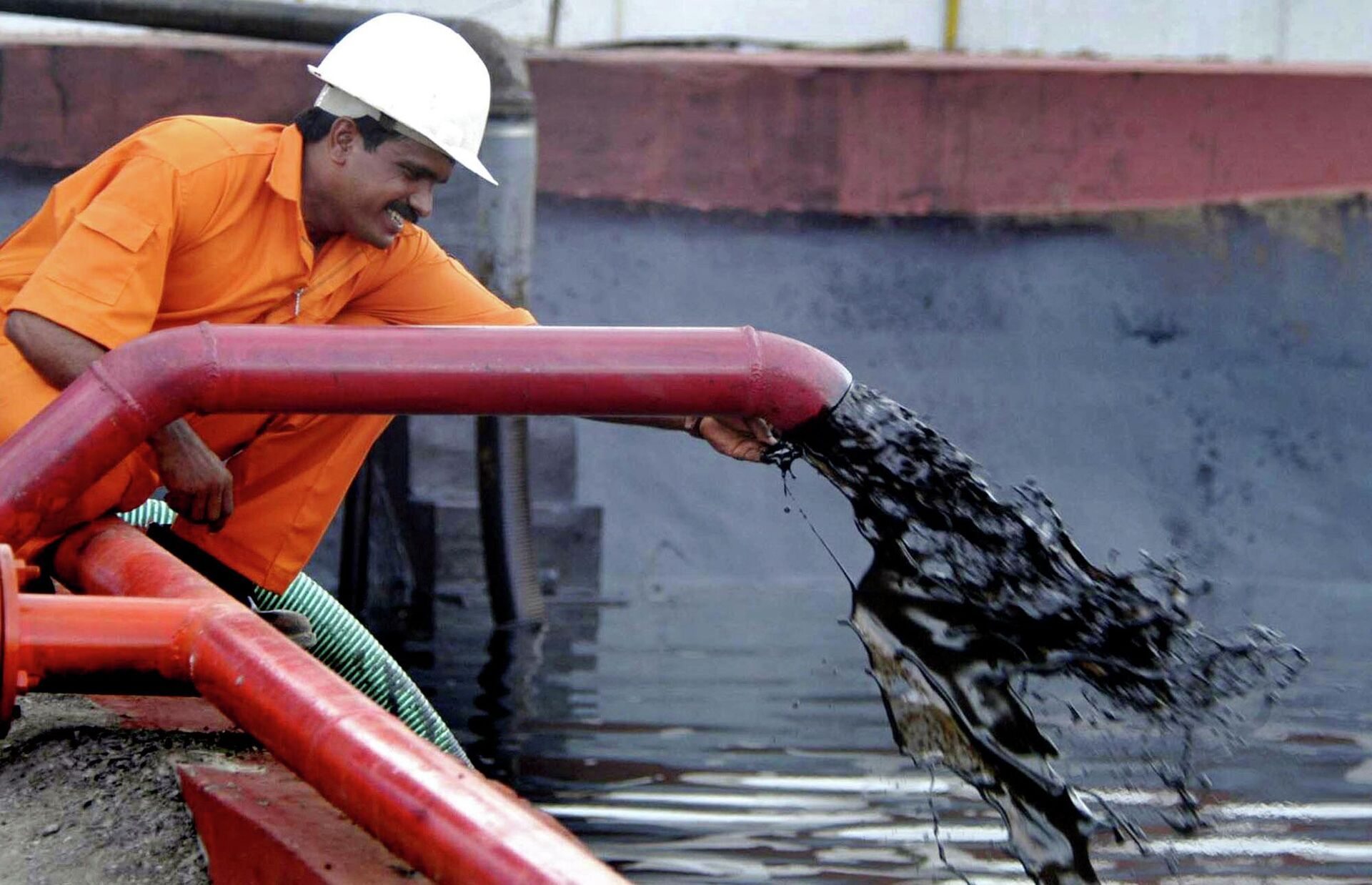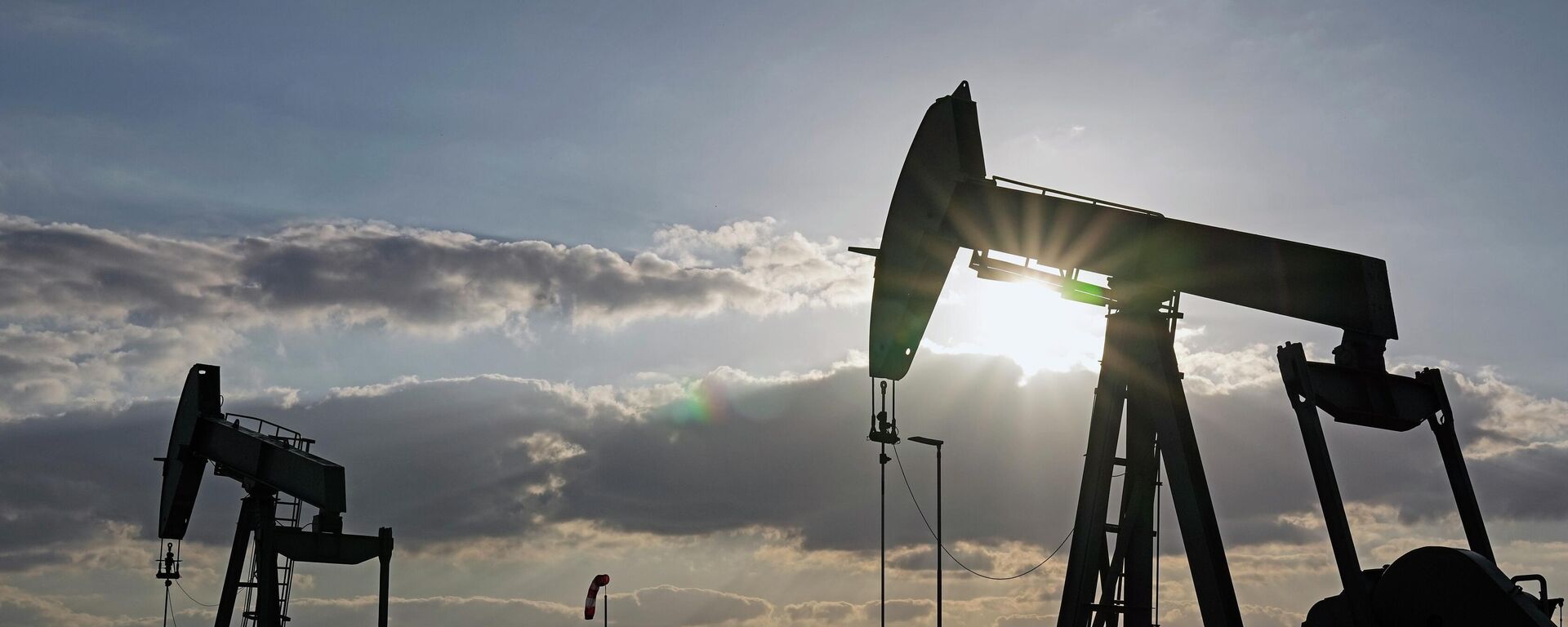https://sputniknews.in/20240308/us-sanctions-on-russian-oil-imperil-indias-imports-6779835.html
India & Russia Optimistic About Better Ties Despite US Sanctions
India & Russia Optimistic About Better Ties Despite US Sanctions
Sputnik India
Since the outbreak of hostilities in Ukraine, the US and the EU have systematically tried to restrict Russian oil exports. The latest in the countless rounds of sanctions imposed on the country was unleashed on 23rd February 2024.
2024-03-08T19:59+0530
2024-03-08T19:59+0530
2024-03-09T13:37+0530
sputnik opinion
india
russia
us
european union (eu)
pentagon
rosneft
s. jaishankar
oil exporters
https://cdn1.img.sputniknews.in/img/07e6/0c/0d/80665_0:318:3073:2047_1920x0_80_0_0_18fd243a8e67e0a3a0a5028dab522a63.jpg
As part of the latest sanctions package, more than 500 entities were targeted by Washington, among those were 14 tankers belonging to the Sovcomflot fleet which transported Russia’s discounted oil to Indian ports. Besides limiting Russia’s room to manoeuvre, it is detrimental towards India’s energy security as well. A new approach is urgently required by both sides to rectify the declining economic relations between the two strategic partners lest it fall back to negligible pre-war levels.Despite conflict and turmoil engulfing the world, India is a rising power and the world’s fastest-growing economy, beating expectations and expanding at a breakneckspeed of 8.4% GDP in the last quarter alone. As it industrialises the Indian economy consistently requires vast amounts of energy imports, chief among them oil, to fuel its rapid rise on the international stage. The conflict in Ukraine presented an opportunity as European markets shunned Russian oil and Moscow subsequently looked Eastwards to partner with Asian allies such as India and China. Consequently, Indian imports of Russian crude jumped to a record 2.2 million barrels per day (bpd) in June 2023. The meteoric rise of Russia as India’s top oil importer was in direct defiance of the $60 per barrel price cap that the Price Cap Coalition, a group of mostly US-led Western states implementing the price cap, was seeking to implement globally. Asian giants such as India and China have ignored the price cap set by the Coalition and have continued to buy discounted Russian oil despite protests by Western states. India, for its part, claims that the international energy markets would’ve been disrupted by the “havoc” created by an upsurge in global oil prices had New Delhi not intervened by buying oil from Russia.However, recently Washington has tightened the noose around the Russian oil industry. Since October 2023, firms engaged in violation of the established price cap have been sanctioned in the United Arab Emirates (UAE) and Turkiye. Hong Kong soon joined the growing list as the US sought to finally implement checks against what it saw as loopholes within its sanctions regime. As a result, India has been forced to forego imports of the premium Sokol grade in favour of the less expensive Ural grade from Russia. Paradoxically, the Pentagon has continued to discreetly import Russian oil while preventing others from doing so. Nevertheless, India was not directly targeted given its pivotal role in American strategic designs of presenting a front against China. However, the currently flourishing Indo-Russian oil trade became yet another victim in Washington’s expanding economic warfare against the Russian state.The effects of short-term disruption are becoming profound, as sanctioned ships have to either anchor off Indian shores or be diverted to alternate destinations. The main reason is the inability of Indian refineries to accept cargoes aboard sanctioned vessels, according to Indian Oil Secretary Pankaj Jain. Moscow is also reportedly asking payments to be made in Yuan as transactions using Dirhams have started facing increased scrutiny from regulatory authorities. This is partly why China, which pays for Russian oil in Yuan, hasn’t been as adversely impacted by the latest round of sanctions. Furthermore, Beijing possesses the added geostrategic advantage of sharing a vast boundary with Russia, through which a dedicated oil pipeline which reduces Chinese reliance on oil tankers.However, such lucrative advantages aren’t available to Indian banks, refiners, and traders who have integrated financial networks with Washington and deal in US dollars. Nevertheless, despite the perceived issues both India and Russia are optimistic about their bilateral relations. Russian officials have hinted that they are already working on “logistical options to ensure deliveries to India.” The maritime sector has become an extended battleground in the recent decade, where the Western states impose sanctions while states such as Iran and Russia take counteracting measures to defy such bans, such as opening new shell companies, using its shadow fleet and ship-to-ship cargo transfers to high seas to evade authorities. S. Jaishankar, India’s External Affairs Minister, had defended India’s stance of continuing to buy Russian oil at the recently concluded Munich Security Conference.Additionally, as India looks to conduct new annual deals for the current year, Russia is facing fierce competition from other suppliers too. Even as discounts on Russian crude keep on thinning, Saudi Arabia has slashed oil prices for its Asian customers making them more lucrative for Indian refiners such as Bharat Petroleum and Indian Oil. Exacerbating issues, Rosneft’s units have been unable to open bank accounts in the UAE to accept Indian payments in Dirhams. New Delhi, on its part, is also exploring enhancing its existing strategic oil reserves by 6.5 million tonnes to a total of 11.83 million tonnes. Russia, which is the second-largest oil exporter in the world, can assist New Delhi in its strategic reserve expansion project even as both states explore new avenues of cooperation in today’s tumultuous times.Historically, India has refrained from buying Russian oil as huge geographical distances naturally result in higher freight costs. The Ukraine conflict incidentally created new opportunities allowing Indo-Russian energy cooperation to reach new heights. Now, in the face of renewed challenges from external actors and evolving circumstances, both partners need to search for innovative solutions to maintain the currently achieved momentum in their energy relations.Aaryaman Nijhawan
https://sputniknews.in/20240305/russia-to-remain-a-major-oil-supplier-for-india-petroleum-minister-6742013.html
india
russia
us
Sputnik India
feedback.hindi@sputniknews.com
+74956456601
MIA „Rossiya Segodnya“
2024
Sputnik India
feedback.hindi@sputniknews.com
+74956456601
MIA „Rossiya Segodnya“
News
en_IN
Sputnik India
feedback.hindi@sputniknews.com
+74956456601
MIA „Rossiya Segodnya“
Sputnik India
feedback.hindi@sputniknews.com
+74956456601
MIA „Rossiya Segodnya“
russian crude to india, india-russia, indo-russian relations
russian crude to india, india-russia, indo-russian relations
India & Russia Optimistic About Better Ties Despite US Sanctions
19:59 08.03.2024 (Updated: 13:37 09.03.2024) Since the outbreak of hostilities in Ukraine, the US and the EU have systematically tried to restrict Russian oil exports. The latest in the countless rounds of sanctions imposed on the country was unleashed on 23rd February 2024.
As part of the latest sanctions package, more than 500 entities were targeted by Washington, among those were 14 tankers belonging to the Sovcomflot fleet which transported Russia’s discounted oil to Indian ports. Besides limiting Russia’s room to manoeuvre, it is detrimental towards India’s energy security as well. A new approach is urgently required by both sides to rectify the declining economic relations between the two strategic partners lest it fall back to negligible pre-war levels.
Despite conflict and turmoil engulfing the world, India is a rising power and the world’s fastest-growing economy, beating expectations and expanding at a breakneckspeed of 8.4% GDP in the last quarter alone. As it industrialises the Indian economy consistently requires vast amounts of energy imports, chief among them oil, to fuel its rapid rise on the international stage. The conflict in Ukraine presented an opportunity as European markets shunned Russian oil and Moscow subsequently looked Eastwards to partner with Asian allies such as India and China.
Consequently, Indian imports of Russian crude jumped to a record 2.2 million barrels per day (bpd) in June 2023. The meteoric rise of Russia as India’s top oil importer was in direct defiance of the $60 per barrel price cap that the Price Cap Coalition, a group of mostly US-led Western states implementing the price cap, was seeking to implement globally. Asian giants such as India and China have ignored the price cap set by the Coalition and have continued to buy discounted Russian oil despite protests by Western states. India, for its part, claims that the international energy markets would’ve been disrupted by the “havoc” created by an upsurge in global oil prices had New Delhi not intervened by buying oil from Russia.
However, recently Washington has tightened the noose around the Russian oil industry. Since October 2023, firms engaged in violation of the established price cap have been sanctioned in the United Arab Emirates (UAE) and Turkiye. Hong Kong soon joined the growing list as the US sought to finally implement checks against what it saw as loopholes within its sanctions regime. As a result, India has been forced to forego imports of the premium Sokol grade in favour of the less expensive Ural grade from Russia. Paradoxically, the Pentagon has continued to discreetly import Russian oil while preventing others from doing so. Nevertheless, India was not directly targeted given its pivotal role in American strategic designs of presenting a front against China. However, the currently flourishing Indo-Russian oil trade became yet another victim in Washington’s expanding economic warfare against the Russian state.
The effects of short-term disruption are becoming profound, as sanctioned ships have to either anchor off Indian shores or be diverted to alternate destinations. The main reason is the inability of Indian refineries to accept cargoes aboard sanctioned vessels, according to Indian Oil Secretary Pankaj Jain. Moscow is also reportedly asking payments to be made in Yuan as transactions using Dirhams have started facing increased scrutiny from regulatory authorities. This is partly why China, which pays for Russian oil in Yuan, hasn’t been as adversely impacted by the latest round of sanctions. Furthermore, Beijing possesses the added geostrategic advantage of sharing a vast boundary with Russia, through which a dedicated oil pipeline which reduces Chinese reliance on oil tankers.
However, such lucrative advantages aren’t available to Indian banks, refiners, and traders who have integrated financial networks with Washington and deal in US dollars. Nevertheless, despite the perceived issues both India and Russia are optimistic about their bilateral relations. Russian officials have hinted that they are already working on “logistical options to ensure deliveries to India.” The maritime sector has become an extended battleground in the recent decade, where the Western states impose sanctions while states such as Iran and Russia take counteracting measures to defy such bans, such as opening new shell companies, using its shadow fleet and ship-to-ship cargo transfers to high seas to evade authorities. S. Jaishankar, India’s External Affairs Minister, had defended India’s stance of continuing to buy Russian oil at the recently concluded Munich Security Conference.
Additionally, as India looks to conduct new annual deals for the current year, Russia is facing fierce competition from other suppliers too. Even as discounts on Russian crude keep on thinning, Saudi Arabia has slashed oil prices for its Asian customers making them more lucrative for Indian refiners such as Bharat Petroleum and Indian Oil. Exacerbating issues, Rosneft’s units have been unable to open bank accounts in the UAE to accept Indian payments in Dirhams. New Delhi, on its part, is also exploring enhancing its existing strategic oil reserves by 6.5 million tonnes to a total of 11.83 million tonnes. Russia, which is the second-largest oil exporter in the world, can assist New Delhi in its strategic reserve expansion project even as both states explore new avenues of cooperation in today’s tumultuous times.
Historically, India has refrained from buying Russian oil as huge geographical distances naturally result in higher freight costs. The Ukraine conflict incidentally created new opportunities allowing Indo-Russian energy cooperation to reach new heights. Now, in the face of renewed challenges from external actors and evolving circumstances, both partners need to search for innovative solutions to maintain the currently achieved momentum in their energy relations.




